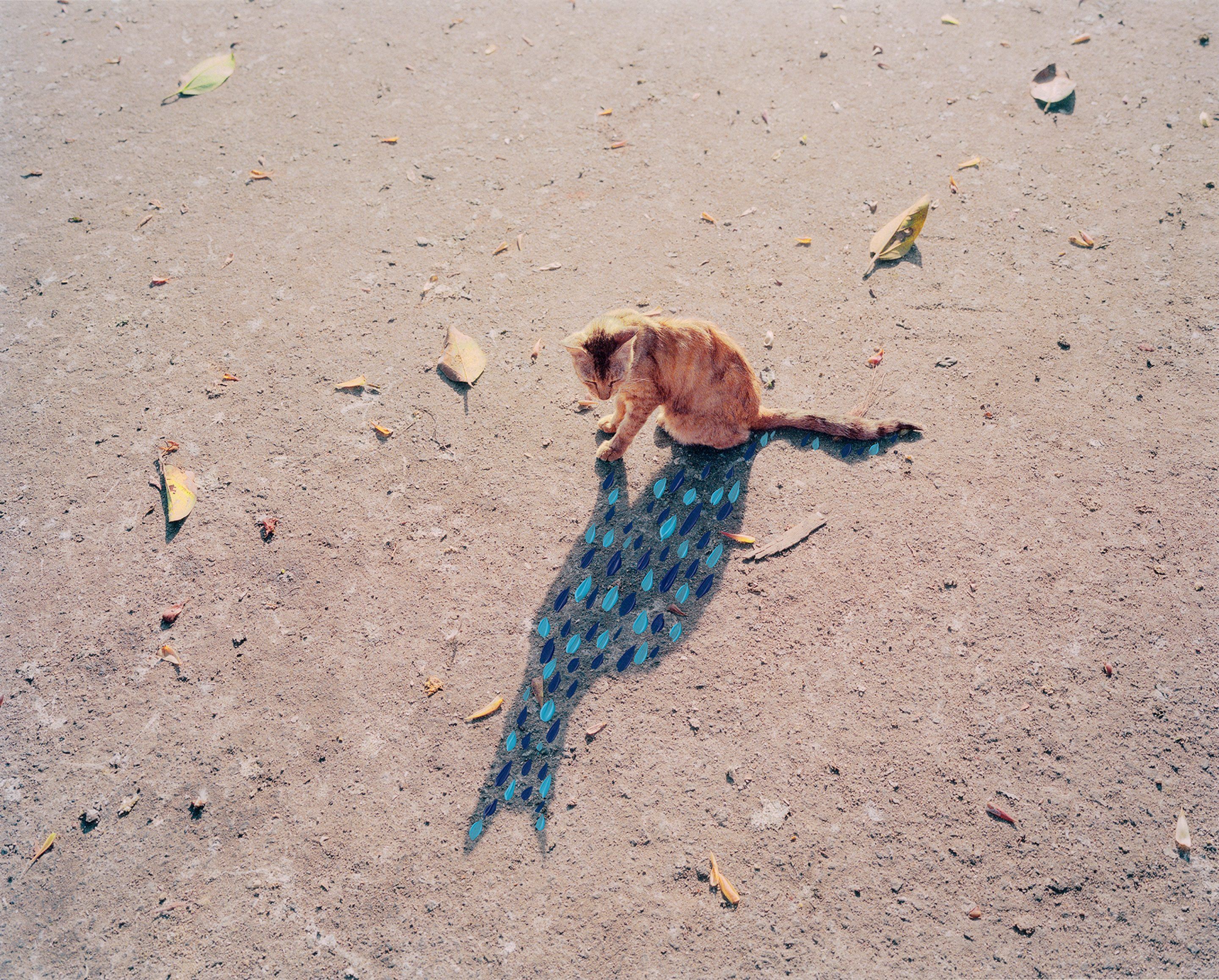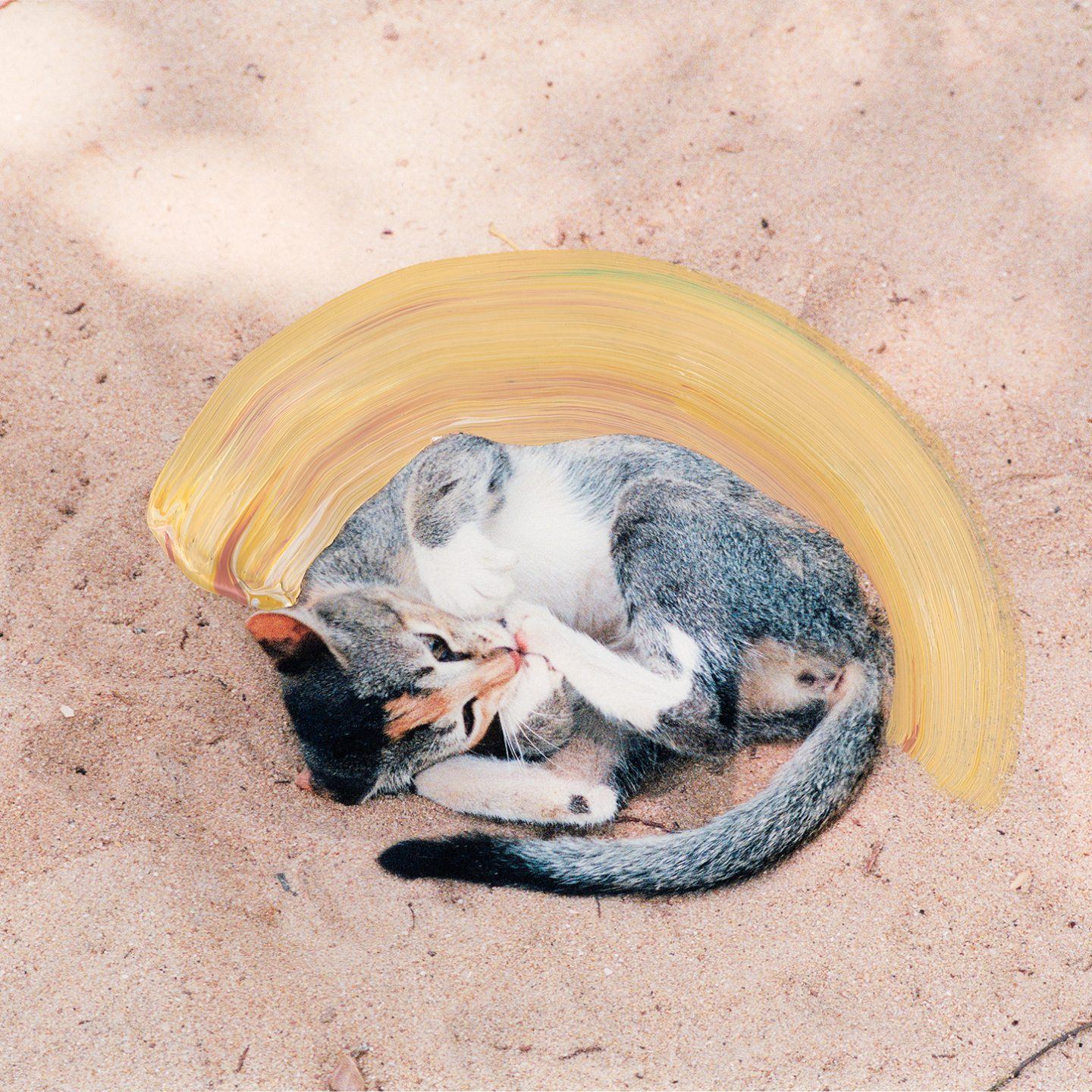
Vasantha Yogananthan Redraws Ancient Mythology In Her Series Howling Winds
- Name
- Vasantha Yogananthan
- Words
- Steph Wade
The collaborative project of Paris-based photographer Vasantha Yogananthan combines photography and painting in Howling Winds, the fifth installment of a seven-part photo book entitled A Myth of Two Souls.
The illustrated photographs exist as an interpretation of The Ramayana, one of the founding Sanskrit epics of Hindu mythology. It narrates the life of Prince Rama in seven cantos, and remains one of the most important literary works of ancient India. Yogananthan’s series is a contemporary reading of the famous story, and is inspired by the imagery connected to the myth as well as its ubiquitousness in everyday Indian life. A Myth of Two Souls brings together landscapes, hand-painted staged portraits, and illustrated black and white photographs. “The landscapes are mythical to Indians today as they were described in the original version of The Ramayana,” explains a statement on Yogananthan’s website. “In the portraits, inhabitants of these landscapes stage scenes for the camera that have left a mark on their imagination. These theatrically staged portraits have subsequently been colored by an Indian artist using the ancient technique of hand-painting.”
Over the course of five years, Yogananthan has been and will continue to work closely with two artists in the tradition of Madhubani painting, one of the oldest art forms from the Mithila region of Bihar. Madhubani painting is defined by its colored geometric patterns and is practiced with a number of tools including fingers, small tree branches, brushes, nib-pens, and matchsticks, using natural dyes and pigments. The newly released fifth chapter Howling Winds sets a different tone to previous chapters, focusing largely on vibrant and evocative images of animals. Each chapter of A Myth of Two Souls will be published in book form with indie publishing house Chose Commune. For more information about the project, click here.

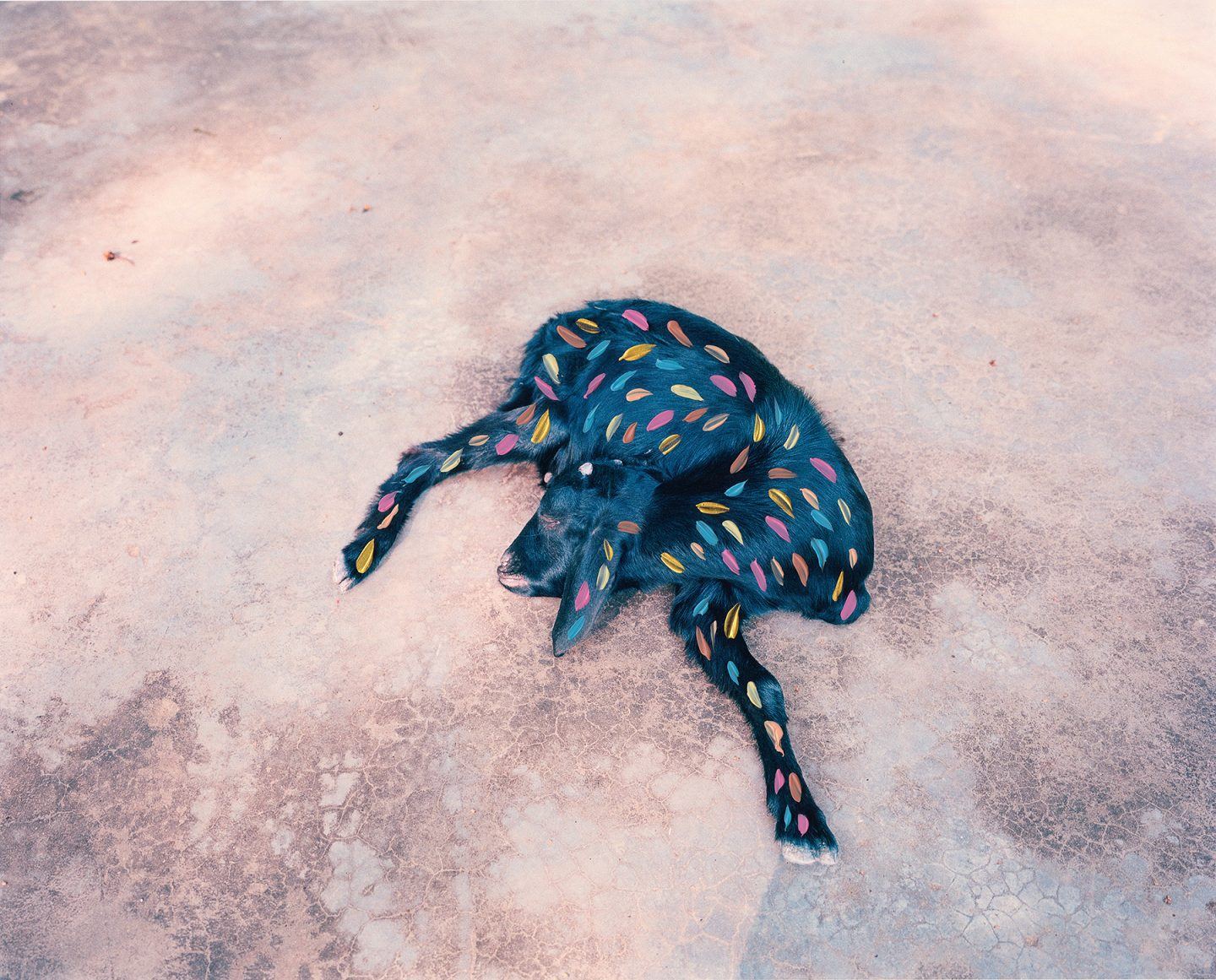


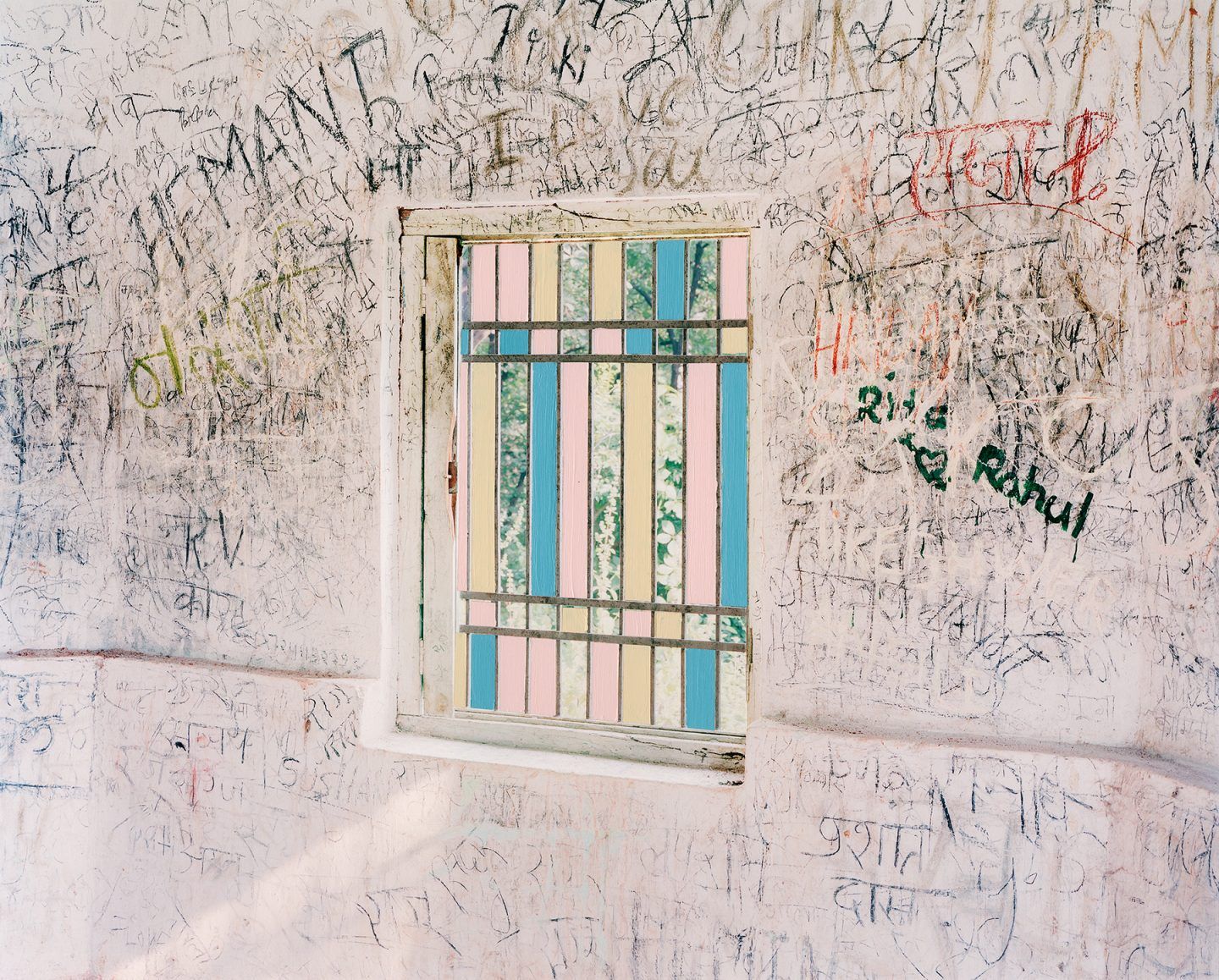
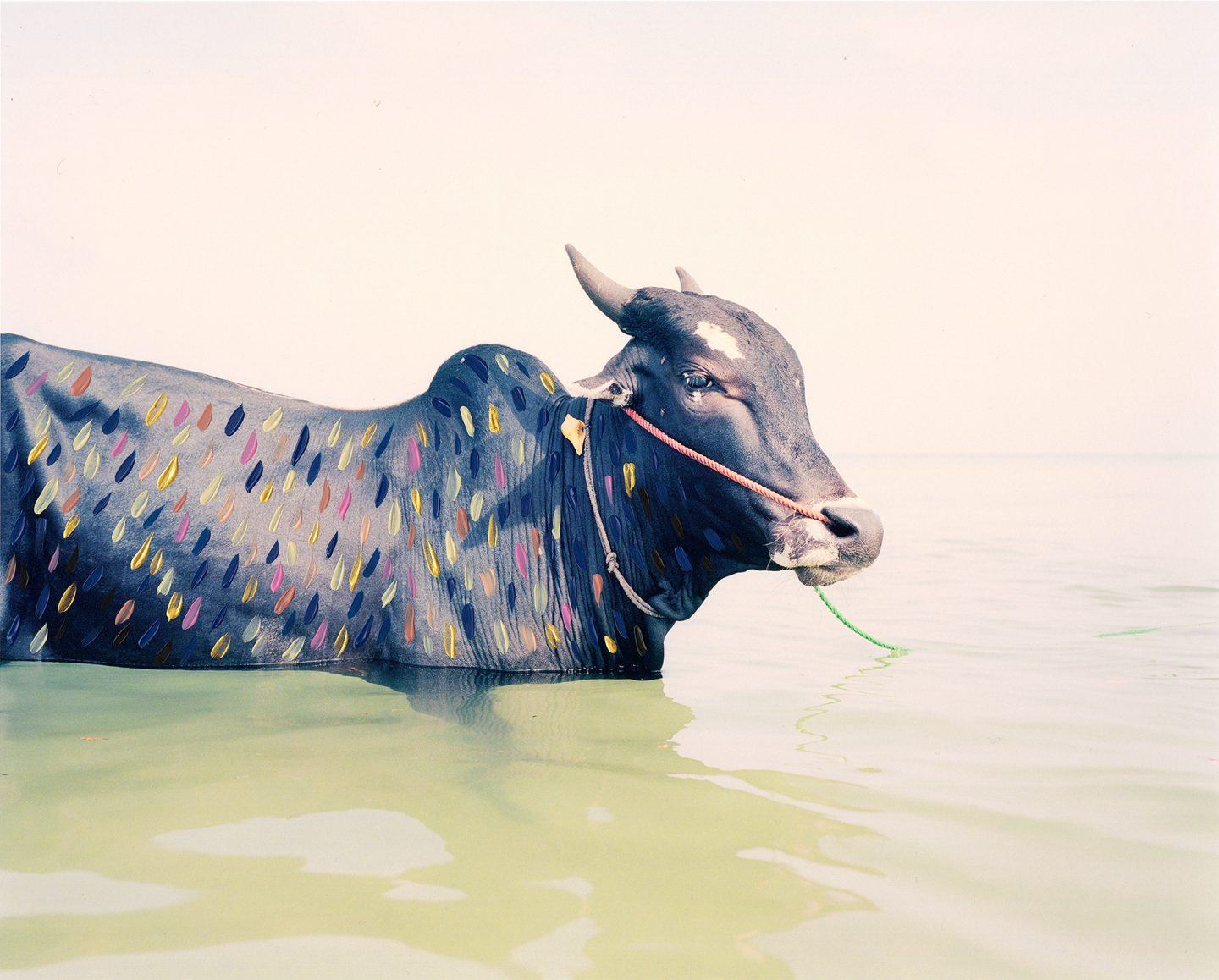
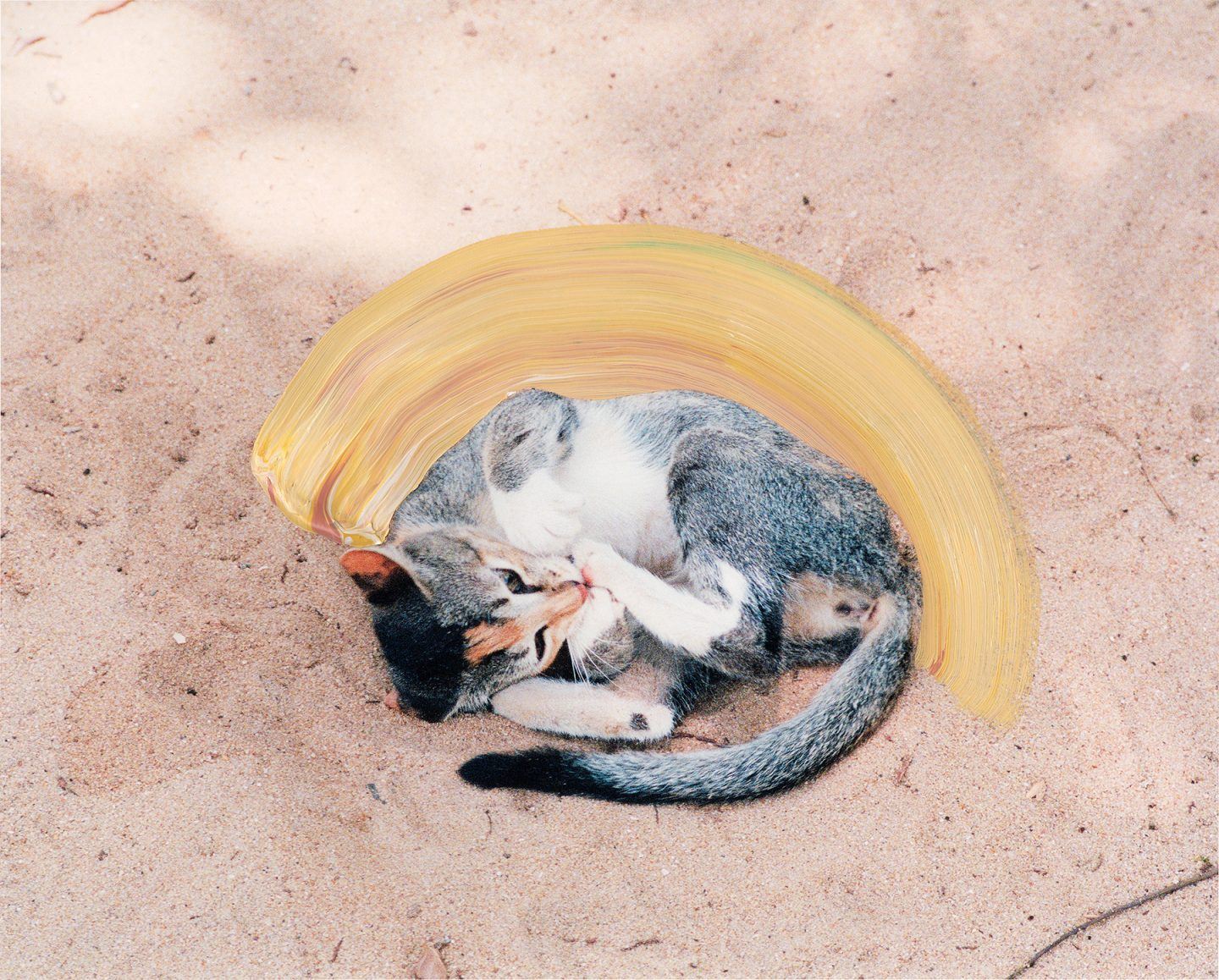
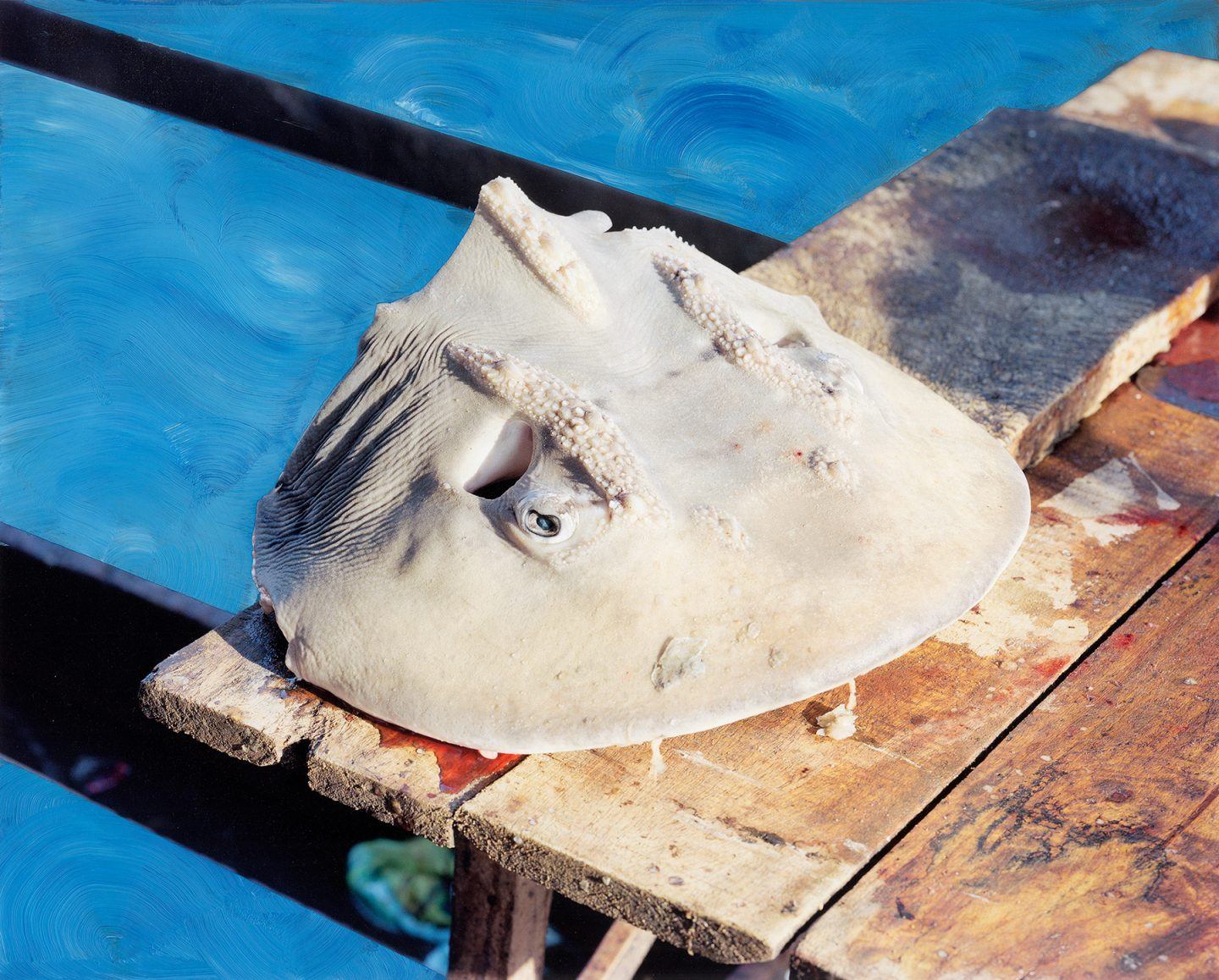
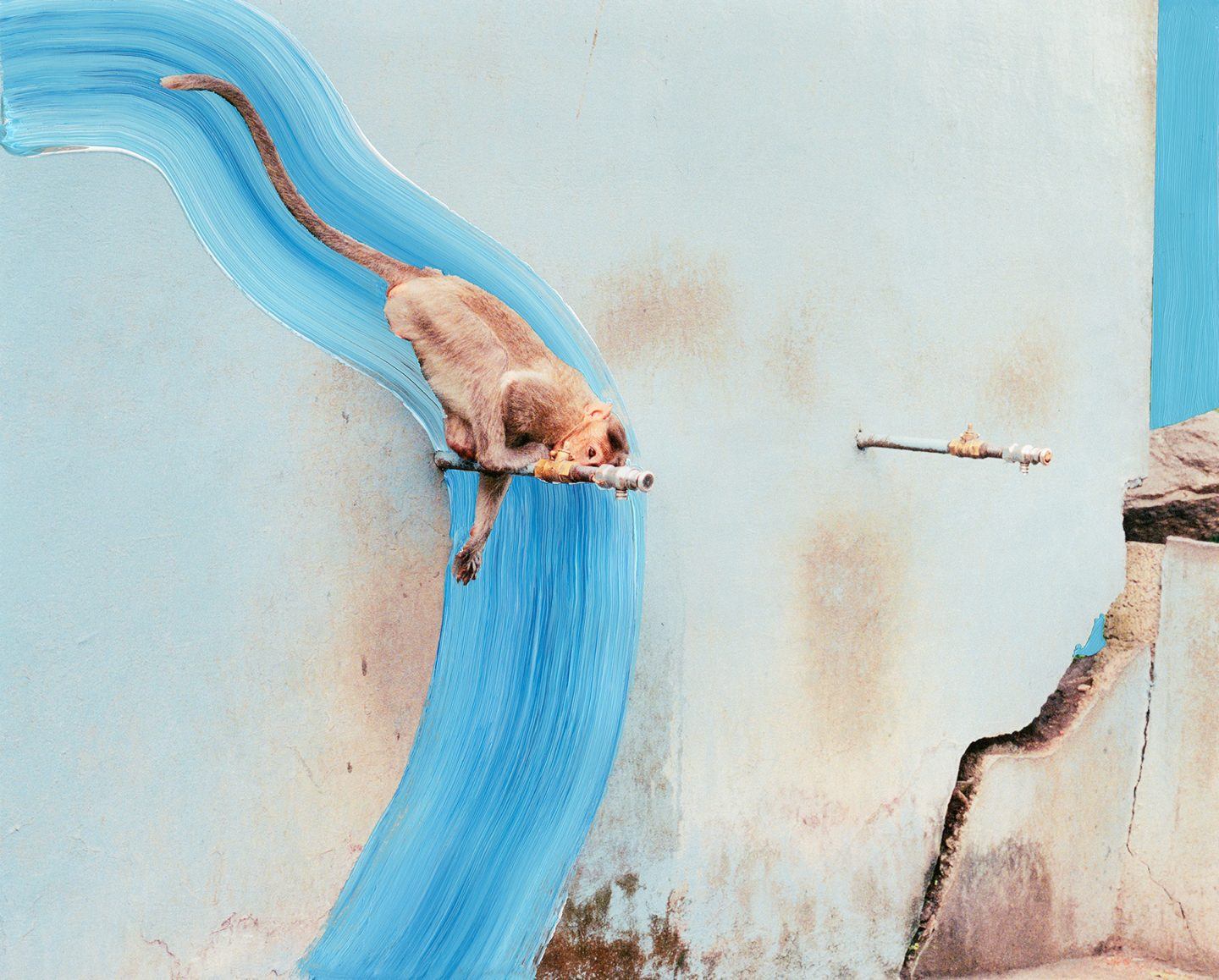

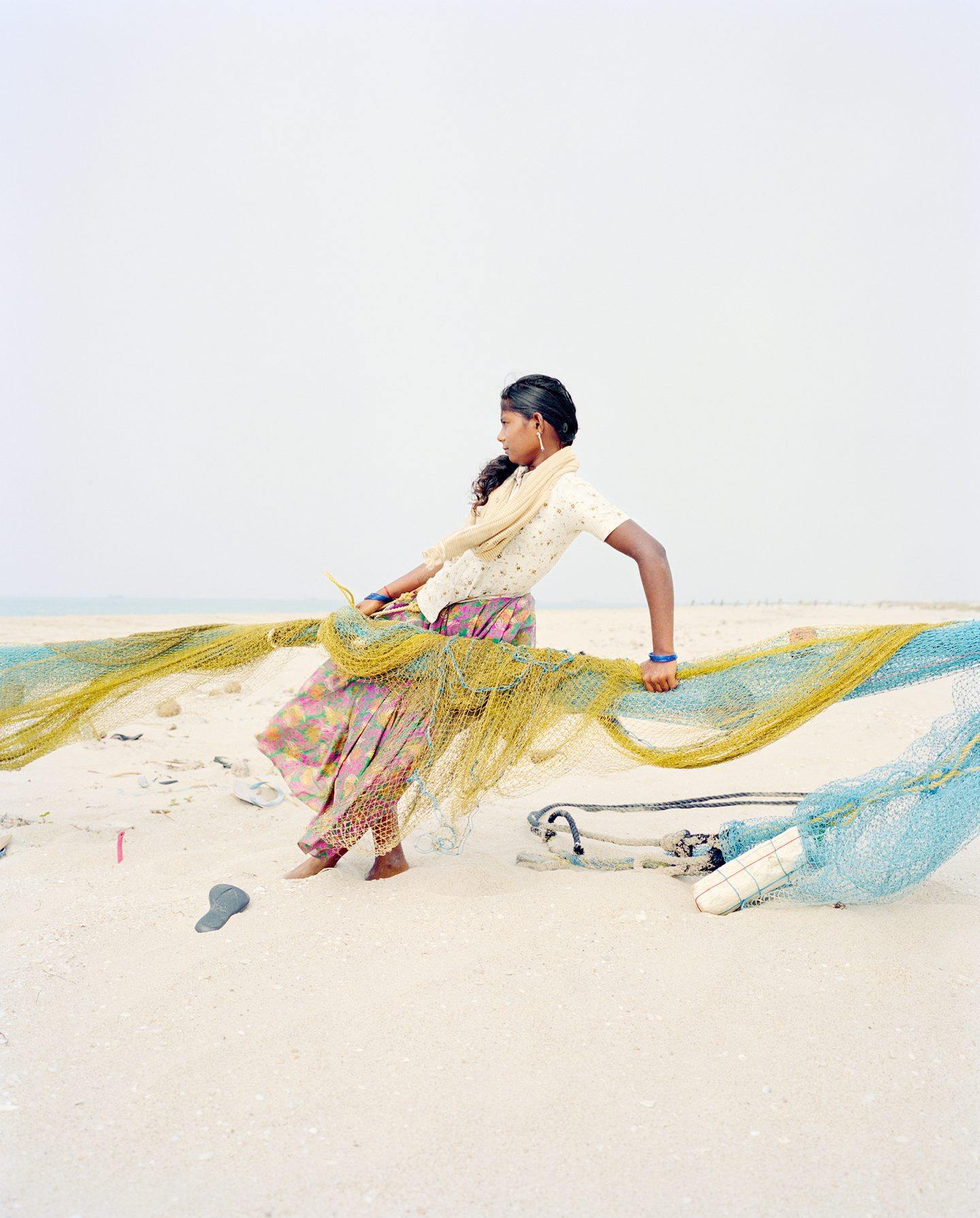
All images © Vasantha Yogananthan
